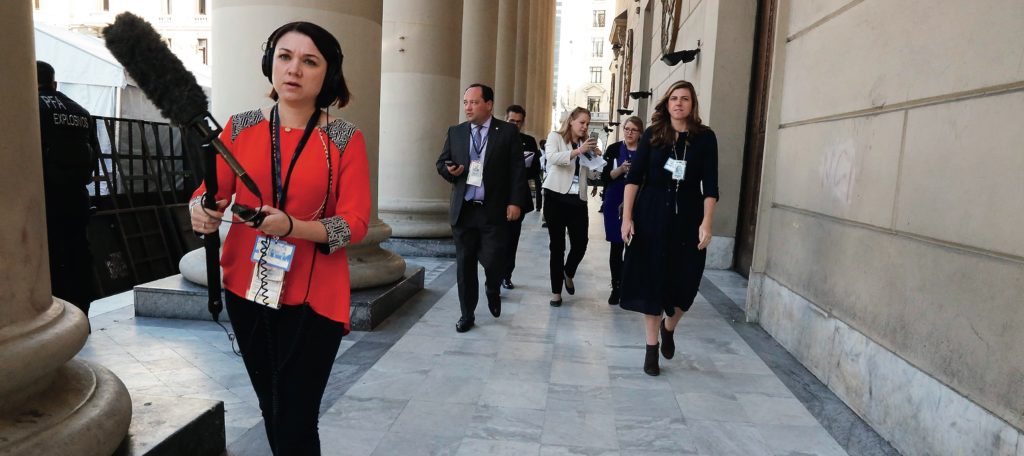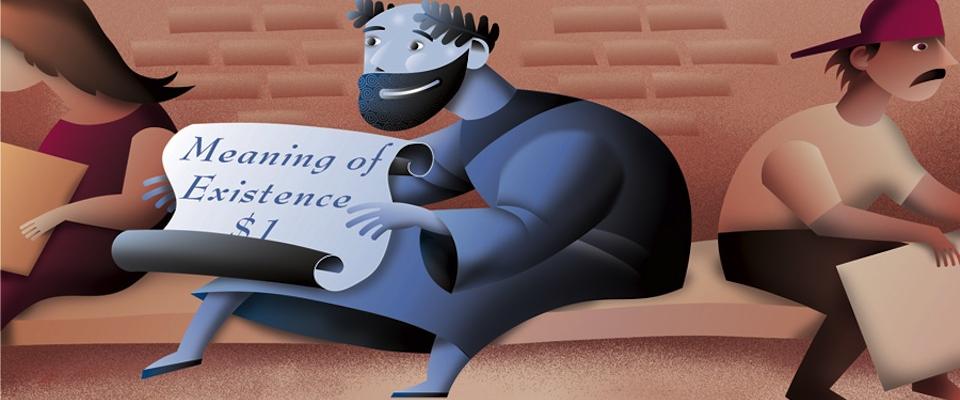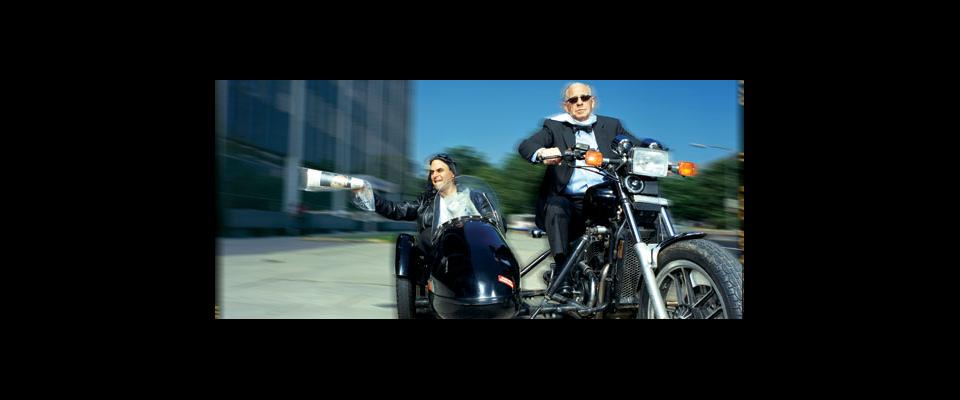Tamara Keith—National Public Radio’s new White House correspondent—told graduating philosophy majors that when she received her UC Berkeley degree in philosophy 15 years ago, her dream job was to cover presidential campaigns for MTV.
“But,” she quipped, “covering the White House for NPR would have been a very close second.”
As the department’s distinguished alumni speaker, she offered graduates the following triad of advice: “Never give up. Don’t take no for an answer. Seek out mentors.”
The trajectory of her career confirms how successfully she has followed her own advice. The daughter of a school teacher in the Central Valley, she has said she grew up listening to NPR while strapped into her car seat. She managed to graduate from high school in just three years, but not before having made her debut on NPR, writing and reading some essays on the program “Weekend Edition Sunday”—her topics ranged from the universal (what to wear on the first day of school) to the unique (buying her father a tattoo for his 50th birthday.)
“I’d sent all these letters to NPR personalities asking them for advice on where to go to college and what to major in. Cokie Roberts called me back and just left a message on the answering machine that said, ‘More later, but whatever you do, don’t major in communications.’”
At Cal, Keith worked almost full-time in the Public Affairs Office and later interned at KQED’s “California Report” and still managed to graduate in three years. She stayed at Berkeley to earn a master’s in journalism in 2001, and by 2009 she joined NPR as a business reporter. She went on to cover the aftermath of the earthquake in Haiti, BP’s oil spill in the Gulf of Mexico, and various stages of the presidential campaigns of Mitt Romney, Newt Gingrich and Herman Cain. She also was a congressional correspondent, and reported on the Winter Olympics in Sochi, Russia.
While her resume suggests hard-driving ambition, a self-deprecating Keith credits her success to naïve optimism. “Part of it was just not realizing there were limitations. When I was young, I was dumb and it was really good! Now I realize there’s no reason that any of those things should have happened,” she said after the commencement ceremony.

Echoing a claim that department chair John MacFarlane made in his speech at the ceremony—and what other alums told CALIFORNIA Online in a recent report—she said philosophy prepared her well for her career. “I’ve had many opportunities to use my philosophy degree to home in on what one politician or another was saying and to find the flaw in their logic and ask them to explain it,” she told the graduates in a Sunday speech at Faculty Glade that students and parents later described as down-to-earth and engaging.
Keith’s political reporting in Washington has focused on budget issues, and has made for some memorable moments for NPR listeners. One such moment came during last fall’s tense, protracted shutdown of the federal government. At one point, North Carolina GOP Rep. Mark Meadows, a supporter of the shutdown, was insisting to a gaggle of reporters that the partisan battle was no longer about Obamacare; it was about veterans’ benefits and cancer research. If that’s the case, Keith pressed, why wouldn’t Meadows simply allow a funding bill to pass and re-open the government?
The congressman’s response, she recalled, was “a long pause” followed by a “30-second word salad.”
Today, 15 years after graduating, Keith said she still faces the same question about her major: “Philosophy, huh?”
It was an unusual choice for someone who, before she even set foot on the Berkeley campus, knew she wanted to do radio journalism.
Credit Cokie Roberts. Roberts is the grand dame of political commentary, having been NPR’s congressional reporter for a decade before going to on to become a political commentator for ABC News as well as senior political analyst for NPR.
“I’d sent all these letters to NPR personalities asking them for advice on where to go to college and what to major in,” Keith explained— as if of course everyone did that. “Cokie Roberts called me back and just left a message on the answering machine that said, ‘More later, but whatever you do, don’t major in communications.’”
Roberts could be a fitting mentor for Keith, who has no clear next step after achieving the plum reporting position at NPR. It’s a role so prized that the first woman in the White House press corps, Helen Thomas, stayed there for 40 years and only left under pressure.
“I’d like to stay in journalism as long as Cokie has, and I wouldn’t mind occasionally doing TV stuff,” Keith said. “And someday I’d love to be expert enough to be the expert.”






















